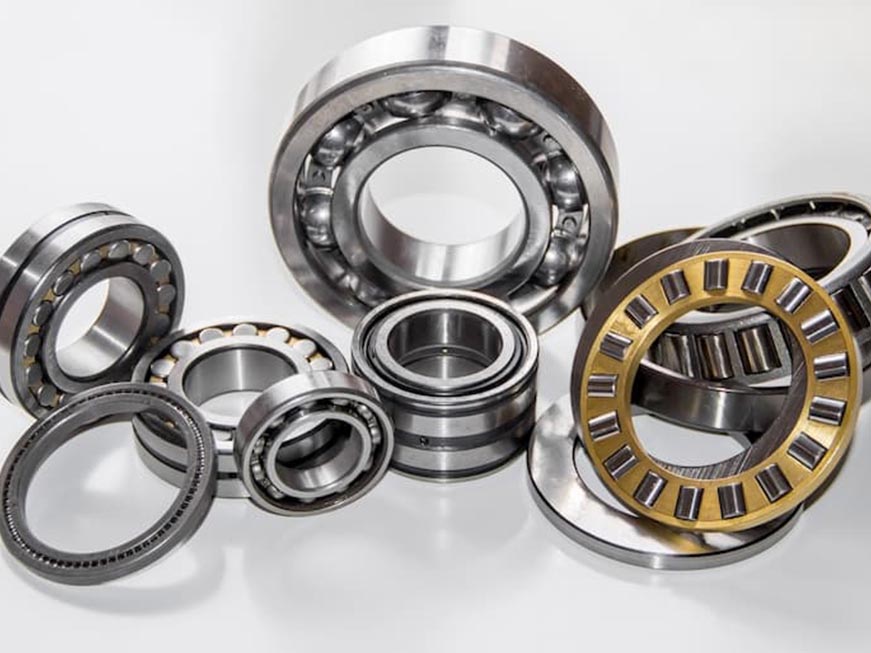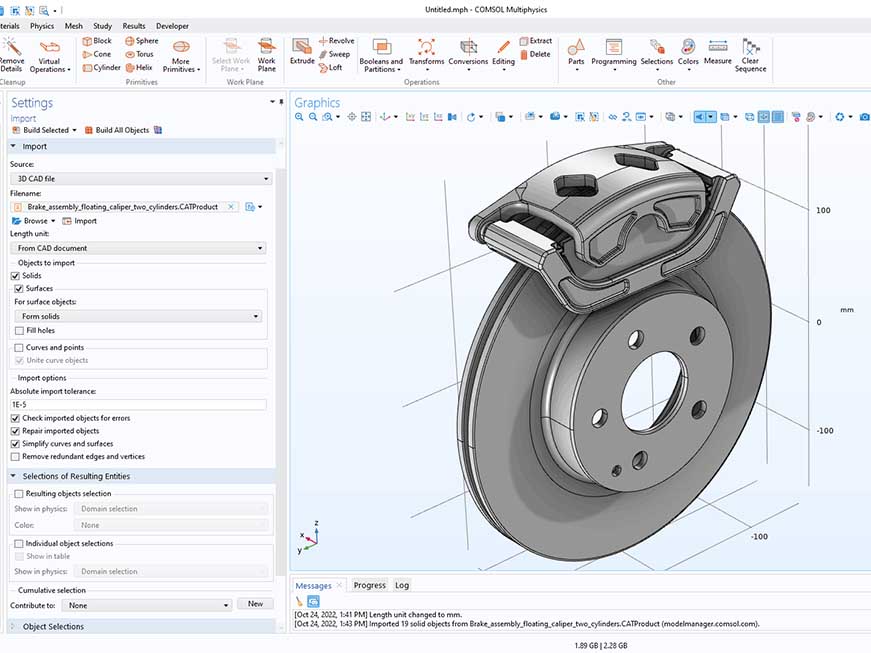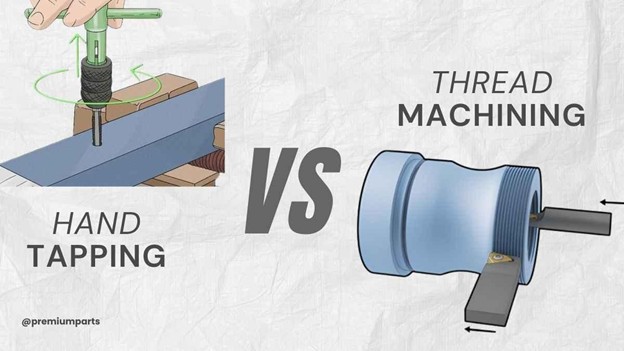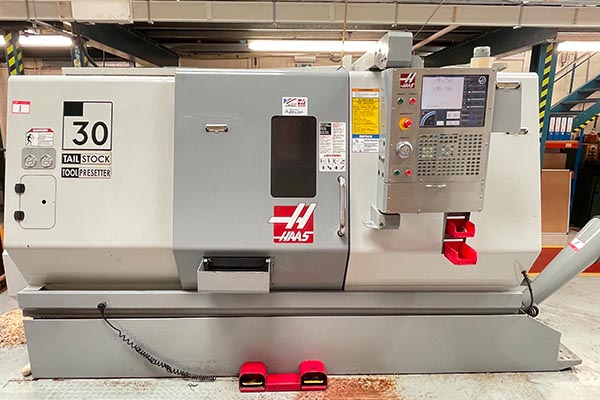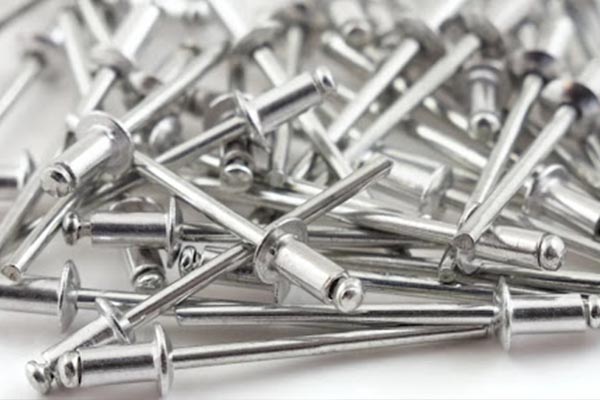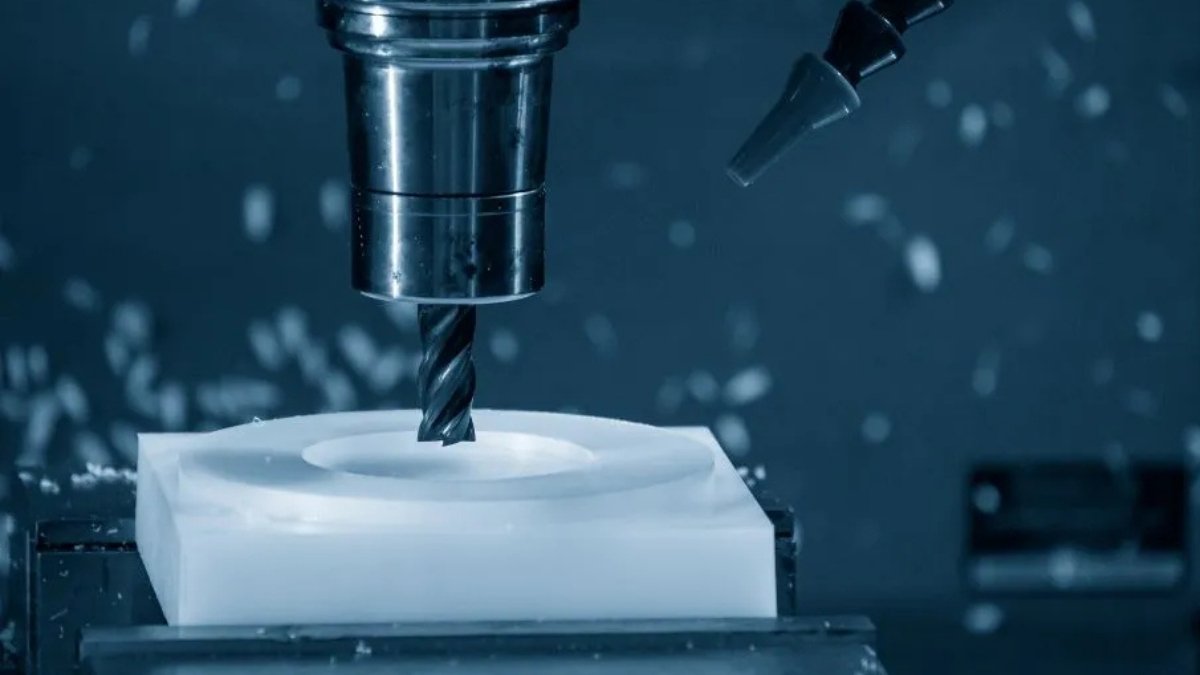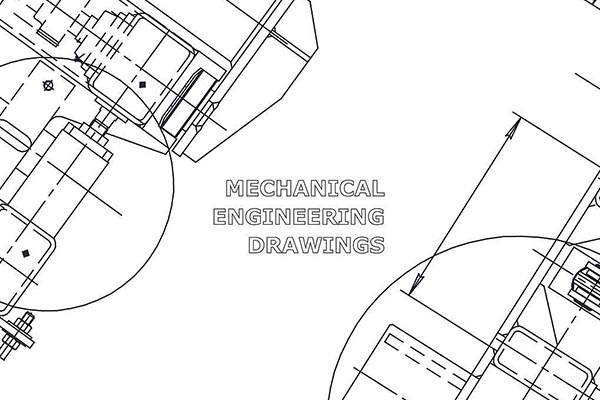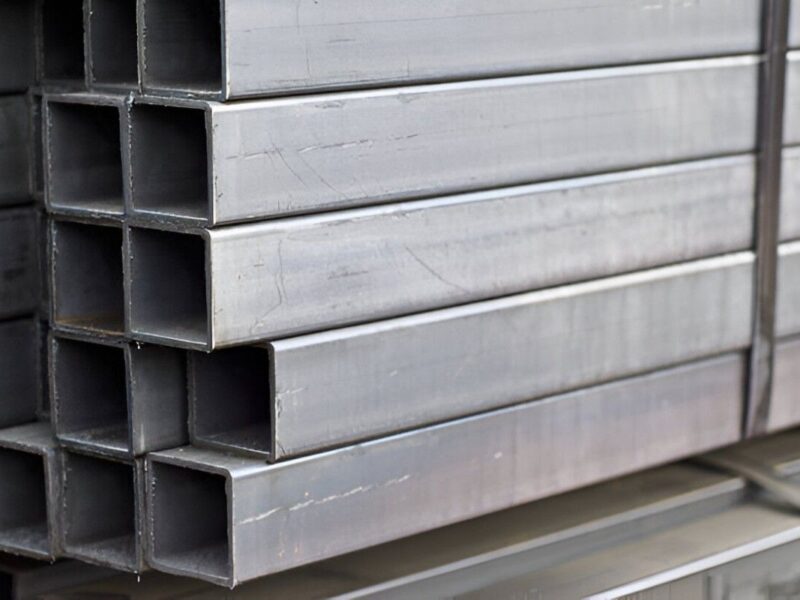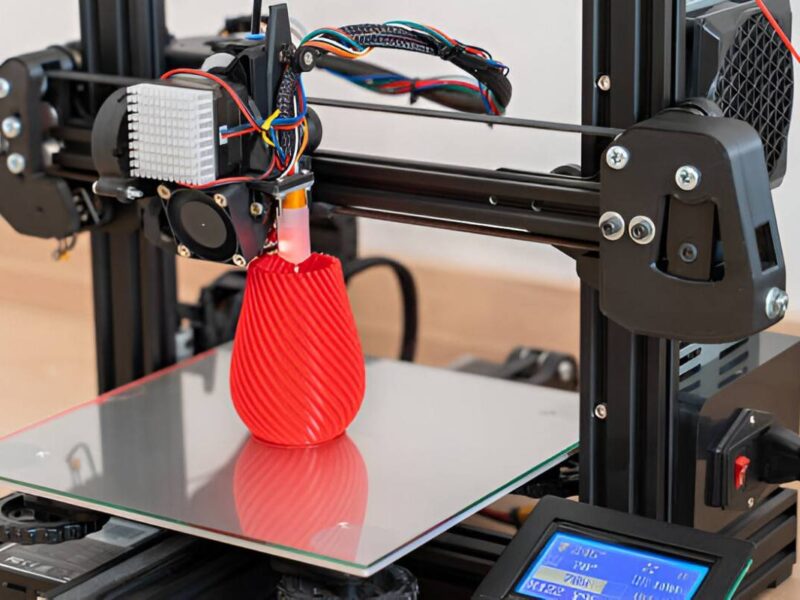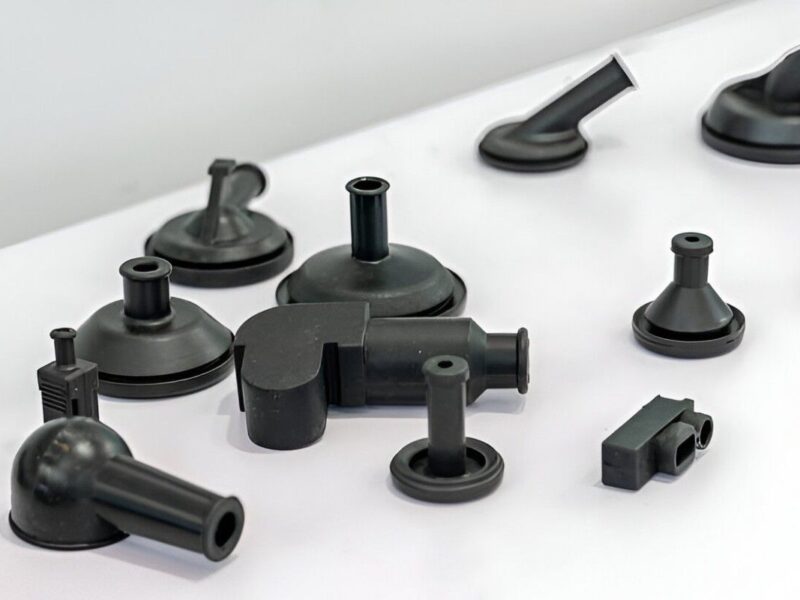The Automotive Industry is evolving day by day. The requirements of exact-fit components are increasing, and parts need to be fit and perform as intended as a benchmark. However, it’s often challenging to fabricate parts that must have stringent tolerances and durability to work efficiently. Nowadays, as the competition and expectations of consumers in the market are growing, manufacturers are being pushed to develop less expensive yet reliable techniques to produce the complex automotive components.
The answer to these challenges is CNC machining processes for the automotive industry. The form of this advanced manufacturing technology is a way to rapidly create highly detailed and accurate automotive parts out of a broad range of materials. These machines provide the precise blend of precision, flexibility, and scalability in producing the parts at exact specifications, whether for a prototype or a large-scale production.
In this article, we’ll look into automotive CNC machining, its benefits, common techniques, and how it can lead to the production of automotive components.
What is Automotive CNC Machining?
CNC (Computer Numerical Control) is a process wherein machines are operated through computers to manufacture products made from various materials. The automotive industry demands parts designed with intricate shapes, tight tolerances, and high levels of accuracy, so this technology allows engineers to come up with these.
CNC machining is important in automotive manufacturing in responding to the increased demand for high-performing and safe cars. The growing requirements for precision in interior and engine parts make CNC machining a definite solution. With stricter quality controls and consumer demand for reliability by automobile manufacturers, CNC machining guarantees the production of complex components of consistently high quality. This procedure increases both the functionality of vehicles and the beauty of elements, providing both practical and visual beauty impacts.
Role of CNC Machining in Automotive Parts Production
All parts in the automotive industry need to work properly in a complete set. Each component of an engine, suspension, or electrical system has to meet specific performance standards. And the most important benefits of CNC machining in automotive manufacturing are below:
Precision and Accuracy
Accuracy and precision play a big role in automotive parts production because the components have to fit perfectly in the system of the vehicle. The result of high precision is smooth assembly, optimal performance, and safety. At the same time, the application of accuracy will mean that both parts are within very tight tolerances for functionality and reliability.
Diverse in Material Use
However, in the automotive industry, there are a variety of materials being used, which include aluminium and the more specialized alloys. CNC machining also lends itself to quite different plastics and composites, including ABS, polycarbonate, and glass-reinforced polymers that are used for interior components and lightweight structural parts. Using a premium CNC milling machine for the automotive parts allows manufacturers to work with various materials so each part can provide the needed strength, weight, and performance specifications.
High Efficiency and Reduced Lead Time
The automotive parts production lead times are significantly reduced using the CNC machining services. Automated processes allow manufacturers to dispose of the high-volume part faster and more consistently, and still produce with the highest quality.
CNC Automotive Machining for Prototyping and Design Customization
In the automotive industry, which always pushes the limits of design, prototyping, and customization are key parts. CNC machining for the automotive industry gives automotive manufacturers the ability to rapidly and accurately make prototypes of new parts, where they can iterate on design.
Benefits
- This offers quick turnaround on custom parts like bespoke brackets and restricted edition pieces.
- It speeds up the testing and design modification so the product can be functional and safe before mass production.
- Suitable for low-volume production and special round models in high-performance and luxury vehicles.
Common CNC Machining Techniques for Automotive Components
When it comes to delivering high-quality CNC machining for the automotive industry, we use advanced CNC technology at Premium Parts. Some of the most common CNC machining techniques we use are the following:
CNC Milling
One of the most common ways to manufacture automotive components is by CNC milling. It is the process of rotating a cutting tool against the workpiece, which can create complex geometric shapes and holes as well as features with high precision. We have multi-axis-equipped CNC milling machines that are premium and used in automotive applications to quickly make complex designs.
CNC Turning
The cylindrical parts are produced by using CNC turning. The cutting tool then removes material to shape the workpiece as it rotates. This is a technique used mainly for rotating parts such as shafts, pins, etc., in vehicles.
CNC Grinding
Manufacturers use CNC drilling to produce precise holes/contours in automotive components. It is important in fabricating parts having smooth surfaces, for instance, bearing parts and gears.
CNC Drilling
Holes are produced in automotive parts by CNC drilling because of the precision holes that are produced. This technique maintains accurate, repeatable results for fluid passageways in engine components or mounting holes for various assemblies.
5-Axis CNC Machining
Automotive manufacturing through 5-axis CNC machining can easily achieve accurate production of complex components such as engine parts and transmission systems. Moreover, it relieves multiple setups, increases accuracy, and guarantees high performance, providing the ability to use more sophisticated types of materials for lightweight, durable parts of automotive elements.
3D Printing
3D printing allows rapid prototyping for the production of unique parts and for the design of lightweight components. It lets manufacturers come up with complex, high-performance parts and bring down material wastage, shortening development cycles without losing a cost-effective, flexible design.
Benefits of CNC Machining for the Automotive Industry
CNC machining gives the automotive industry so many benefits. Some of the key advantages are as follows.
High Precision
Consistent with the quality expectation, CNC precision machining for automotive guarantees that each piece fits exactly. It provides very high accuracy, reducing errors and rework time, and parts fit and work well.
Scalability
Scaling production to full-scale manufacturing for CNC machines is easy. It can help satisfy the need for a small batch of custom parts or the same components repeatedly, whichever you need.
Reduced Waste
By using CNC machining, material waste can be minimized. These services allow manufacturers to optimize material usage and save costs, and support the companies’ sustainability initiatives.
Faster Turnaround Time
Automation in CNC machining for automotive applications greatly reduces the production time. It allows the manufacturing of parts fast without losing quality and thus shortens the time to market for automotive manufacturers.
Evaluating the Right Service Partner for Automotive Parts
If your automotive parts owe their strength to CNC machining, your machining service must understand the industry’s specific needs. We at Premium Parts are dedicated to providing CNC machining for the automotive industry and all the necessary services in line with today’s rush automotive requirements.
Below are a few factors to evaluate while opting for a machining partnership.
Expertise in the Automotive Industry
Choose a service provider that has already manufactured automotive components. Since we have much experience in CNC-machined automotive components, we are aware of what the industry needs, and we have been providing it for years.
Advanced Equipment
Make sure that the machining provider utilizes superior CNC milling machines for automotive parts with 5-axis capabilities for complex geometries and high-precision finishes.
Quality Control
A good ideal CNC machining service would have an established quality control system. We only carry the best quality parts. We inspect and test each part to ensure that it passes our rigorous inspection.
Customization
Custom solutions are often used in automotive projects. Consider only the CNC machining service partner who provides customized solutions to your specific requirements. As a company, we work hand in hand with our clients to reach their ideal specifications on a part so that we can manufacture and design every part for our customers.
Automotive CNC Machining Applications
CNC machining in the automotive industry has a wide range of applications. It is applied from engine components to interior parts to improve the quality and performance of different automotive systems.
Engine Components
Engine parts like the piston, cylinder heads, and crankshaft are widely produced by CNC machining. These components have to be fairly precise in their performance and durability.
Suspension Parts
In particular, suspension components like control arms, strut mounts or brackets are important for vehicle safety and handling. For these automotive parts, CNC machining ensured quality.
Transmission Parts
In addition, CNC is the technology essential for the production of transmission components, including gears, shafts, and housings. However, CNC machining provides the accuracy and consistency that these critical parts need to work smoothly.
Interior Components
CNC machining creates precision parts for vehicle interiors. Manufacturers use it for functionality and aesthetics. It helps produce everything from dashboard elements to structural components.
Exterior Components
CNC machining creates bumpers, trim pieces, and structural parts. These components are made to resist external conditions. Manufacturers produce them to meet high-quality standards.
How Automotive CNC Machining Industry’s Shift to Electric Vehicles (EVS)
CNC machining for the automotive industry has now found itself at the centre of the rise of electric vehicles (EVS). It investigates how CNC machining helps to produce lightweight, sturdy, and efficient components for electric vehicles.
Benefits
- It helps in producing lightweight parts that increase the efficiency and range of EVS.
- Perfect to support the building of complex components like battery enclosures and motor components to ensure the EVS meets the highest performance standards.
- Speeds up production time and lowers the cost associated with producing low-volume parts used in prototype and pre-production EV models.
Conclusion
So, overall, Automotive CNC machining is considered a major driving force of precision, efficiency, and innovation in automotive factories. Manufacturers use machining to meet the high demands of modern vehicle design. Additionally, it creates automotive components with unmistakable accuracy from various materials. In particular, five-axis CNC machining adds versatility in design. Moreover, it enables rapid prototyping of custom parts.
In addition, manufacturers implement sustainable practices through CNC processes. These practices, in turn, help automate design for manufacturing. As a result, it is ideal for producing custom parts in small quantities, typically fewer than 1,000 units. Consequently, the automotive micro-industry benefits greatly from automotive machining. It improves performance, enhances safety, and increases cost efficiency.
If you want to boost the quality and function of your automotive parts using the most state-of-the-art machining technology, there is one company you should go to, and that company is Premium Parts. Contact us today, as we are ready to collaborate with you in bringing your automotive components to life with the greatest precision and efficiency.
FAQs
Why is CNC machining so important in the automotive manufacturing business?
CNC machining is highly precise, scalable, does not produce waste, has a fast turnaround time, and is able to manufacture complex geometries, making it the perfect modern method for producing automotive parts.
What are the common materials used in CNC machining for automotive components?
Materials common for use include aluminium, steel, stainless steel, titanium, and so forth, alloys. These materials are strong, durable, and heat-resistant and can meet the needs of automotive applications.
Which CNC machines in particular are used in automotive manufacturing?
CNC milling machines, CNC lathes, 5-axis CNC machines, and CNC drilling machines are the most common types. The parts produced by these machines are high precision and efficient.
Why is 5-axis CNC machining useful for automotive part production?
5-axis CNC machining enables the making of complex and intricate parts in one setup, reducing fixtures and overall production time and improving efficiency.
What should I choose as a CNC machining service for my automotive parts?
Focus on finding the provider with expertise in automotive manufacturing, advanced equipment, strong quality control, and the ability to supply customized solutions according to your needs.


